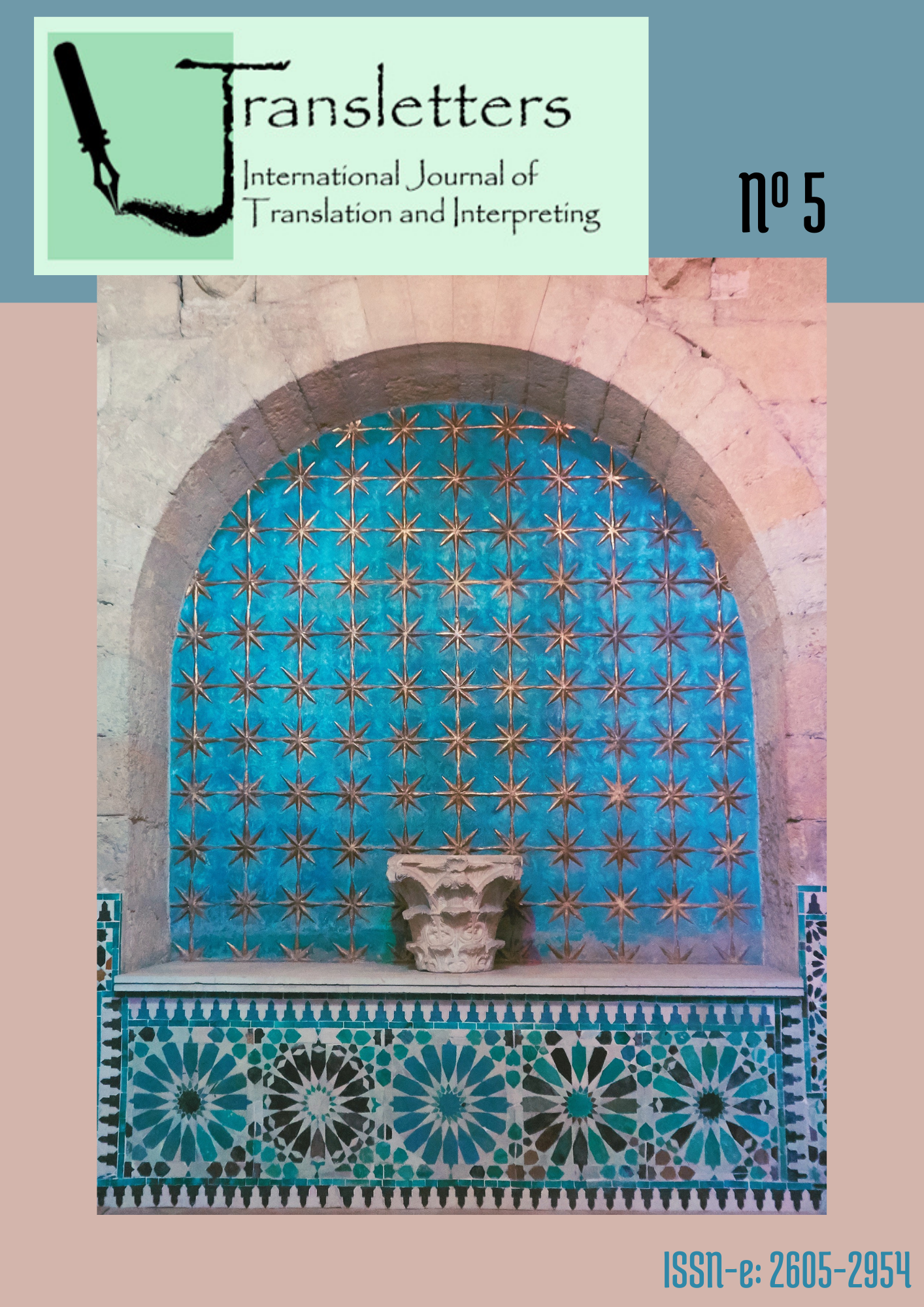Elementos fílmicos y lingüísticos en la adaptación traductológica de los mockumentaries
Main Article Content
Abstract
El mockumentary es un género fílmico híbrido que combina diferentes códigos y géneros: el documental, la parodia y la deconstrucción (Roscoe y Hight, 2001; Hight, 2010). En este estudio se desglosan los elementos que conforman este género, los elementos fílmicos y también los elementos lingüísticos, todo ello con el objetivo principal de facilitar una guía útil para traductores que se aproximen a este tipo de largometrajes. Para ello, en esta investigación, se ha seleccionado un corpus de textos audiovisuales procedentes de tres mockumentaries: CSA (Kevin Willmott, 2004), Forgotten Silver (Peter Jackson y Costa Botes, 1995) y Opération Lune (William Karel, 2002) donde se examinan los diferentes componentes, los elementos culturales históricos –distorsionados– del documental y los elementos lingüísticos característicos en este híbrido fílmico como son el humor (Zabalbeascoa, 1996, 2012) y los referentes culturales (Dore, 2019; Ranzato, 2011; Werner Díaz Navarrete, 2010). Los primeros resultados muestran que el formato documental, el aspecto humorístico y la deconstrucción de los elementos culturales son participantes directos en la traducción y adaptación bien por omisión o por multiplicidad.
Downloads
Article Details
Suggested policy for journals that offer open access
Authors who publish with this journal agree to the following terms:
1. Authors retain copyright and grant the journal the right of first publication with the work simultaneously licensed under a Creative Commons Attribution License, which allows others to share the work with an acknowledgement of authorship of the work and initial publication in this journal.
2. Authors may enter into additional contractual arrangements for non-exclusive distribution of the published version of the paper in the journal (e.g., submission to an institutional repository), with an acknowledgement of its initial publication in this journal.
3. Authors are allowed and encouraged to publish their work prior to the final version published in this journal once accepted (e.g., in institutional repositories or on their website), as it can lead to productive exchanges, as well as earlier and higher citation of the published work (see The Open Access Effect).

